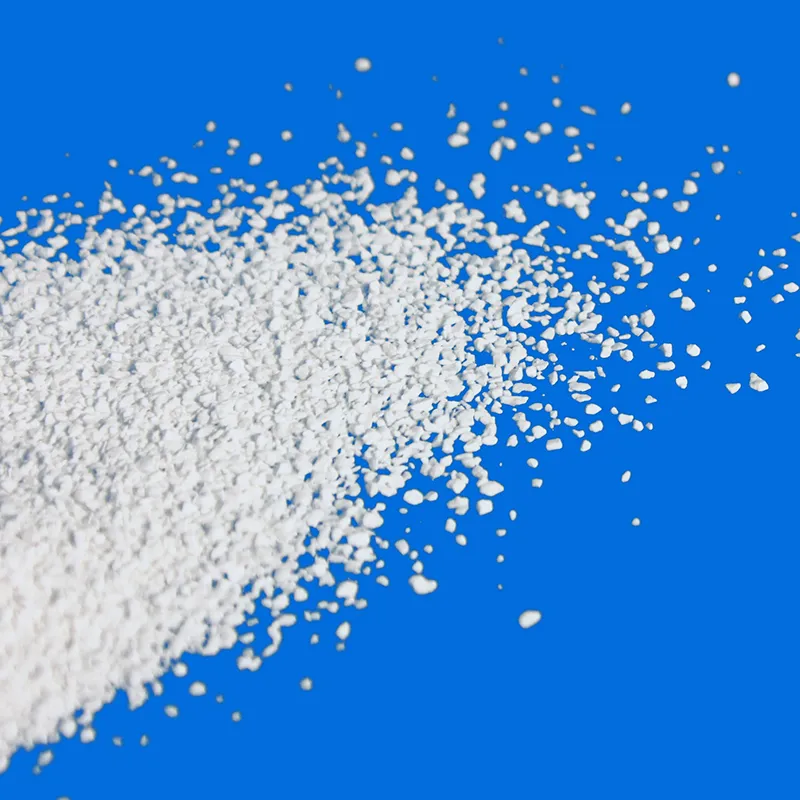
potassium sorbate for food
The Role of Potassium Sorbate in Food Preservation
In today's fast-paced world, the demand for preserved food items has risen dramatically. As consumers seek convenience without compromising on quality, food manufacturers have turned to various preservatives to enhance the shelf life of their products. One such preservative that has gained significance in the food industry is potassium sorbate.
What is Potassium Sorbate?
Potassium sorbate is the potassium salt of sorbic acid, a naturally occurring compound found in certain fruits. It appears as a white, crystalline powder, and is highly soluble in water. Initially, sorbic acid was discovered in the 1850s, derived from the berries of the mountain ash tree. However, potassium sorbate has become more popular due to its effectiveness, safety, and versatility in food preservation.
Uses of Potassium Sorbate in Food
Potassium sorbate is primarily used as a preservative to inhibit the growth of mold, yeast, and certain bacteria in various food products. It plays a crucial role in extending the shelf life of foods such as cheese, yogurt, baked goods, dried fruits, and sauces. The use of potassium sorbate helps maintain the taste, texture, and nutritional value of the food, making it an invaluable ingredient in food production.
Mechanism of Action
The effectiveness of potassium sorbate stems from its ability to disrupt the cellular processes of microorganisms. It penetrates the membranes of bacteria and fungi, inhibiting their ability to reproduce and thrive. Unlike some other preservatives, potassium sorbate is most effective at a specific pH range, which is why it is often used in conjunction with other preservation methods to ensure optimal results.
potassium sorbate for food

Safety and Regulation
One of the primary concerns for consumers regarding food additives is safety. Fortunately, extensive research has been conducted on potassium sorbate, and it has been deemed safe for consumption by regulatory agencies, including the Food and Drug Administration (FDA) and the European Food Safety Authority (EFSA). These organizations have established acceptable daily intake levels, ensuring that food manufacturers use potassium sorbate within safe limits.
For most people, consuming potassium sorbate poses minimal risk. However, some individuals may experience allergic reactions or sensitivities, particularly those with certain dietary restrictions or conditions. It is therefore crucial for food manufacturers to label their products clearly, allowing consumers to make informed choices.
Benefits of Potassium Sorbate
The benefits of potassium sorbate extend beyond mere preservation. Its use can lead to reduced food waste by prolonging shelf life, which ultimately impacts the economy positively. Additionally, it can help maintain the quality of organic and natural products, making it an attractive option for manufacturers focusing on health-conscious consumers.
Furthermore, potassium sorbate's low toxicity profile makes it a preferable option compared to some synthetic preservatives that may pose health risks. Its versatility ensures that it can be incorporated into a wide array of food products without significantly altering their flavor or texture.
Conclusion
Potassium sorbate plays a vital role in modern food preservation, helping to ensure safety, quality, and longevity in a variety of products. Its effectiveness in inhibiting microbial growth, along with its regulatory approval for safe use, makes it a go-to preservative for food manufacturers. As consumers become more health-conscious and informed about what they eat, the demand for safe preservation methods like potassium sorbate will likely continue to rise. Ultimately, understanding the role of such preservatives not only educates consumers but also supports a more sustainable food industry.
-
Pure Sodium Dichloroisocyanurate Dihydrate | Powerful DisinfectantNewsAug.29,2025
-
Industrial Chemicals: Quality & Purity for Every IndustryNewsAug.28,2025
-
Nitrile Rubber Honoring Strict Production StandardsNewsAug.22,2025
-
Aspartame Ingredients Honoring Food Safety ValuesNewsAug.22,2025
-
Fertilizer for Balanced Plant NutritionNewsAug.22,2025
-
Cyanide Gold Processing with High Purity AdditivesNewsAug.22,2025
-
Formic Acid in Textile Dyeing ApplicationsNewsAug.22,2025
Hebei Tenger Chemical Technology Co., Ltd. focuses on the chemical industry and is committed to the export service of chemical raw materials.
-

view more DiethanolisopropanolamineIn the ever-growing field of chemical solutions, diethanolisopropanolamine (DEIPA) stands out as a versatile and important compound. Due to its unique chemical structure and properties, DEIPA is of interest to various industries including construction, personal care, and agriculture. -

view more TriisopropanolamineTriisopropanolamine (TIPA) alkanol amine substance, is a kind of alcohol amine compound with amino and alcohol hydroxyl, and because of its molecules contains both amino and hydroxyl. -

view more Tetramethyl Thiuram DisulfideTetramethyl thiuram disulfide, also known as TMTD, is a white to light-yellow powder with a distinct sulfur-like odor. It is soluble in organic solvents such as benzene, acetone, and ethyl acetate, making it highly versatile for use in different formulations. TMTD is known for its excellent vulcanization acceleration properties, which makes it a key ingredient in the production of rubber products. Additionally, it acts as an effective fungicide and bactericide, making it valuable in agricultural applications. Its high purity and stability ensure consistent performance, making it a preferred choice for manufacturers across various industries.





